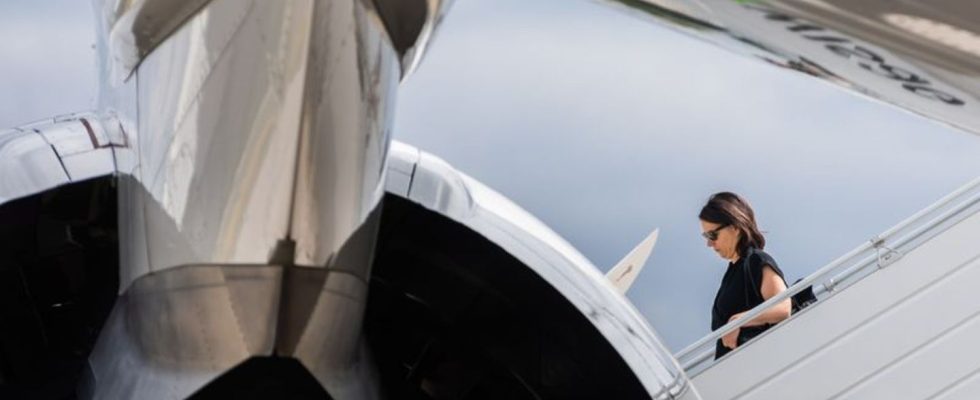diplomacy
Baerbock promotes feminist foreign policy in Mongolia
Foreign Minister Annalena Baerbock (Greens) is a guest in the Mongolian capital of Ulan Photo
© Christoph Soeder/dpa
Foreign Minister Annalena Baerbock wants to advance her concept for a feminist foreign policy. It is also popular in Mongolia.
According to Baerbock, Mongolia has been one of the countries that send the most women to United Nations peacekeeping operations for years. She is interested in what can be learned from these experiences for German participation in UN missions. Mongolia had long been involved with Germany in a peacekeeping mission in Afghanistan. The country is valued as one of the most reliable troop providers.
In addition to Batmunkh Battsetseg (Mongolia), Baerbock and Catherine Colonna (France) will host the meeting of foreign ministers. With the concept of feminist foreign policy, Baerbock wants to involve women more than before in conflict resolution mechanisms for international crises.
Peace, climate, food: topics of the conference
The host suggested three themes for the Foreign Ministers’ Meeting: the role of women in promoting peace and security, climate change and food security. It is also about “problems for international relations” and possible solutions. Russia’s war in Ukraine is not specifically mentioned, but it is likely to be mentioned.
Mongolia caught between China and Russia
Mongolia, which has a population of only 2.75 million, is the second largest landlocked country in the world after Kazakhstan – about four times the size of Germany. The democratic state is geographically sandwiched between Russia and China. The situation requires a balancing act between the two totalitarian neighbors. Mongolia’s reaction to the Russian invasion of Ukraine was muted. She also abstained from voting at the UN General Assembly, which criticized Russia.
Mongolia is one of the most resource-rich countries in the world. Its mineral resources include coal, copper and gold as well as so-called rare earths, which are used, for example, for permanent magnets used in wind turbines.
In Mongolia today there are slightly more women than men in educational institutions and make up half of the working population. Mongolia has had three female foreign ministers since 1998 – Battsetseg since 2021.
Baerbock acknowledged that Mongolia was developing charisma far beyond its own neighborhood. Because of its exposed geographical location, the country is looking for “third neighbors”, close partners even far away from the more than 8,000 kilometers of borders with Russia and China. Germany is such a “third neighbor” because the world’s democracies have to stand together.
One percent of the population speaks German
The first Mongolian schoolchildren and students came to Germany 100 years ago. Today one percent of the population speaks German. Both countries work closely together – for example on the archaeological excavations in the old capital of the Mongolian kingdom of Karakorum, on raw materials or on international peacekeeping.

